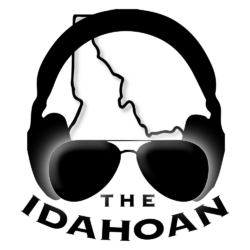Your EPK Is Your First—and Most Important—SEO Tool
If you’ve been following my recent blog posts, you know I’ve been talking a lot about SEO and how it can skyrocket your visibility and brand as a DJ or music producer. Real-world examples? Yep, I’ve shared a few. But now, it’s time to get into the meat and potatoes—what you can actually do right now to boost your SEO and professionalism.
Let’s start at the foundation: You need an EPK—an Electronic Press Kit—and if you don’t already have one, this post is your step-by-step blueprint to building one that works and helps search engines understand who you are and what you do.
What Is an EPK?
An Electronic Press Kit is your professional resume for promoters, bookers, press, and collaborators. It’s a neatly organized collection of the most relevant info about you as an artist:
- Your bio and influences
- Your music genre(s)
- Links to your releases
- Event history and highlights
- Logos and high-res images
- Contact info and social profiles
Traditionally, EPKs are sent as PDFs—but I recommend something better.
Why I Put My EPK on My Website (And You Should Too)
Yes, I have a PDF version. But my primary EPK lives on a landing page of my website—and here’s why that matters:
- It’s easy to update anytime
- It matches my brand and layout
- It helps boost my SEO
- It’s always findable (even if someone loses the email)
- Promoters can download logos, images, and more instantly
It’s all there—bio, social links, images, even a downloadable ZIP with logos and media files. This kind of setup makes promoters’ lives easier—and makes you look like you’ve got your act together.
What Goes In a DJ EPK?
Here’s everything you should include in a professional, SEO-powered EPK:
✅ Bio with Relevant Keywords
Keep it to 500–600 words if you’re doing a PDF. On a website, you’ve got more flexibility. Use searchable keywords naturally:
- Genre + region (e.g. Progressive House DJ in Idaho)
- Influences, style, notable releases
- Semantic terms (DJ, disc jockey, electronic artist, producer, etc.)
Search engines read your bio too. Write for humans, but keep SEO in mind.
✅ High-Resolution Images
Skip the grainy backyard iPhone photos. Use clear, professional images of yourself performing or DJing in recognizable settings. Make sure they’re easy for promoters to grab and use. If you don’t have good images, find a great local photographer who has experience photographing EDM events.
✅ A Clean, Usable Logo
Your logo should be on a white or black background—nothing busy. Make it easy to crop and drop into posters and flyers. Better yet, provide a downloadable file pack: PNG, JPEG, and even PSD if you want to go the extra mile.
✅ Social Media Links (Clearly Displayed)
Don’t make people guess if your username has a zero instead of an “O.” Either clearly display your active handles, or use a Linktree or similar service for a clean, all-in-one solution.
✅ Music & Media Samples
Give people a way to see or hear you in action. Embed or link to:
- Mixcloud sets
- SoundCloud tracks
- Spotify releases
- YouTube videos
Let promoters and bookers audition you quickly.
✅ Upcoming Projects & Past Highlights
Show what’s happening and what’s already happened:
- Labels you’ve released on
- Artists you’ve opened for
- Notable collabs or events
- Future release plans
✅ Contact Information
Include a dedicated artist email (e.g., yourname.dj@gmail.com) and optionally a business phone number (Google Voice works great if you don’t want to use your personal line).
✅ Downloadable Assets (If On Website)
Go above and beyond:
Add a ZIP file with your logo, images, press bio, and PDF version of your EPK. Give promoters everything they need in one download.
Bonus: Why Your EPK Helps Your SEO
Your EPK isn’t just for promoters—it’s one of the most powerful SEO tools in your arsenal. Here’s why:
- It uses keywords tied to your genre and identity
- It’s content-rich and updated often
- It links to your music, social, and booking info
- It signals authority and consistency to search engines
If it’s on your website, search engines index it and associate your name with your scene, your city, and your sound. That means when someone Googles “Techno DJ in Boise” or “Idaho Progressive House producer”, you’re way more likely to show up.
TL;DR: What Your EPK Should Include
- A well-written bio with keywords
- High-res images of you performing
- A clean, crop-friendly logo
- Clear social media handles or a Linktree
- Music and performance samples
- Project highlights and label info
- Downloadable media assets
- Accurate contact info
Your EPK Is Your Foundation
If you don’t already have one, start now. You can build it in a Google Doc, a Canva template, or ideally—as a landing page on your own website. And once it’s live, use it everywhere:
- Link it in your Linktree
- Share it with promoters
- Mention it in pitch emails
- Include it in business directories
- Reference it in press releases
This is step one in getting booked, being searchable, and building real SEO momentum as a music artist.
This post was dictated while riding my bike to work and edited with the help of AI for clarity, grammar, and structure.
Featured Photo by Thiago Miranda from Pexels


